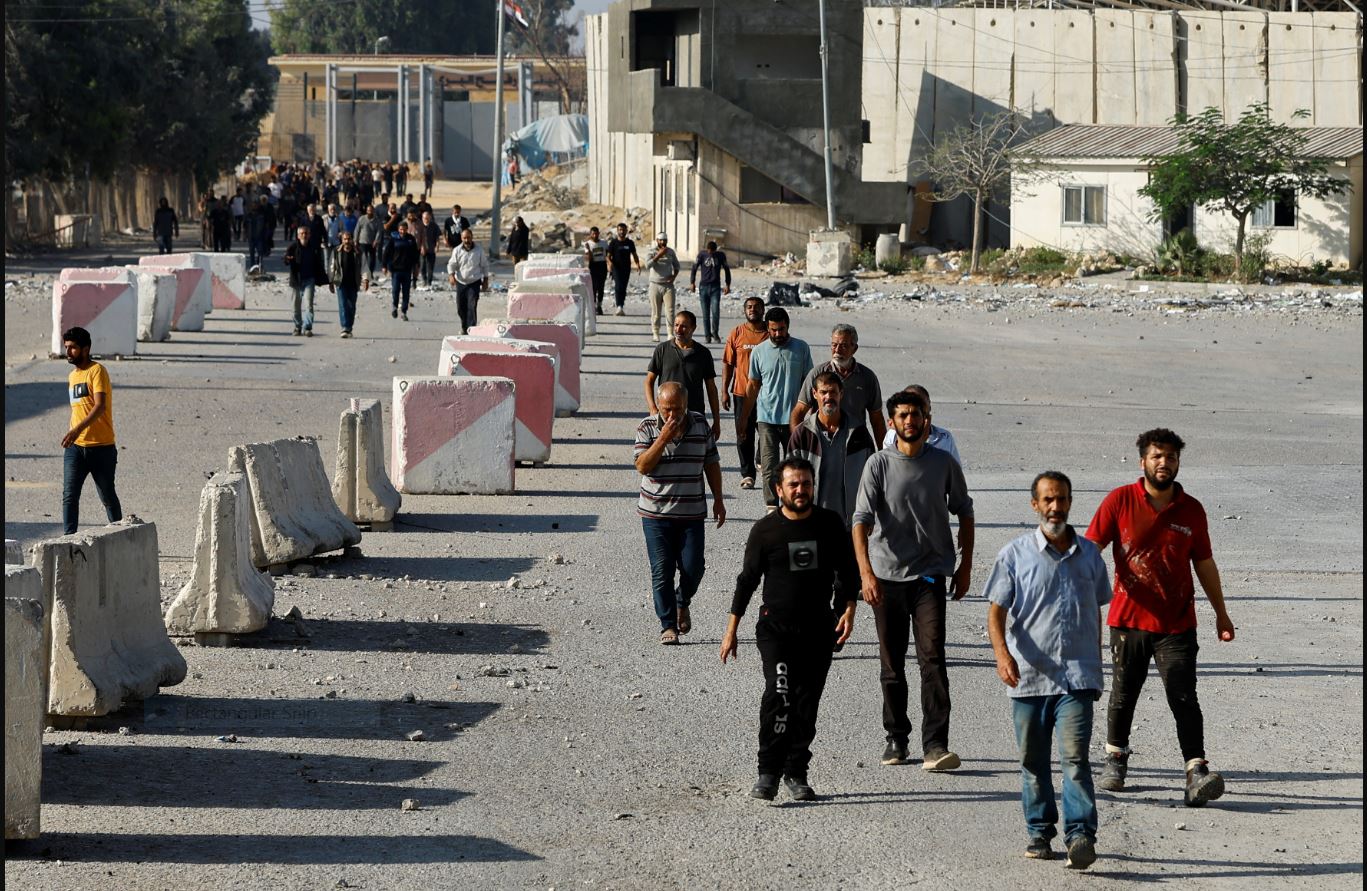Israel sends thousands of cross-border Palestinian workers back to Gaza
Gaza (Reuters) – Israel sent thousands of Palestinians back to besieged Gaza on Friday, pursuing a crackdown on workers and labourers from the territory who had previously been given permits to take jobs in Israel and the occupied West Bank.
Large numbers of workers returned through the Kerem Shalom crossing east of the Rafah crossing between Egypt and the Gaza Strip, which has been pounded by Israeli jets and tanks for weeks since the Oct. 7 attack on southwestern Israel by gunmen of the territory’s ruling Hamas group.
“We used to serve them, work for them, in houses, in restaurants, and in markets in return for the lowest wages, and despite that we have now been humiliated,” said Jamal Ismail, a worker from the Maghazi refugee camp in central Gaza.
Israel previously issued more than 18,000 permits allowing Gazans to cross into Israel and the Israeli-occupied West Bank to take jobs in sectors like agriculture or construction that typically carried salaries up to 10 times what a worker could earn in the blockaded Gaza Strip.
However, the system has been scrapped as Israel has reversed its previous policy of offering economic incentives to stability and instead mounted a combined air and ground offensive to eradicate the militant Hamas movement that controls Gaza.
“Israel is severing all contact with Gaza. There will be no more Palestinian workers from Gaza,” Prime Minister Benjamin Netanyahu’s office said in a statement. “Those workers from Gaza who were in Israel on the day of the outbreak of the war will be returned to Gaza.”
Israel has since bombed the coastal Palestinian enclave nonstop and launched a ground offensive, killing more than 9,200 Palestinians, almost half of them children, according to Gaza health authorities. U.N. officials say more than 1.4 million of Gaza’s population of about 2.3 million have been displaced.
It is unclear how many Gaza residents were in Israel on Oct. 7, when Hamas gunmen burst through the fenced border and rampaged through southern communities, killing 1,400 people and taking 240 into captivity in Gaza.
However, a senior Palestinian Authority official said 4,950 Gaza residents had fled to the West Bank from Israel and some 5,000 were believed to have been detained by Israel.
“Nobody knows what’s going on,” said Ghazal Ghazal, 50, who worked at a sweets factory in Tel Aviv before escaping to the West Bank last month, after hearing from colleagues that Israeli authorities were conducting arrests.
Palestinians have limited self-rule in areas where they live in the West Bank, which is under Israel military occupation.
For those who remain in the West Bank, patchy Internet and phone connections have meant that news from home has been sporadic as the Israeli bombardment has continued.
Nidal Abu Jidian, a father of three who had been working as a road paver in Israel before seeking refuge in a community centre in the West Bank city of Ramallah, said he follows the news on his phone to try to learn about his family’s condition.
“I was on the phone with my uncle. He was shelled while I was talking to him. I was checking in on him and my children and he was killed. I heard the strike. The phone went dead.”


